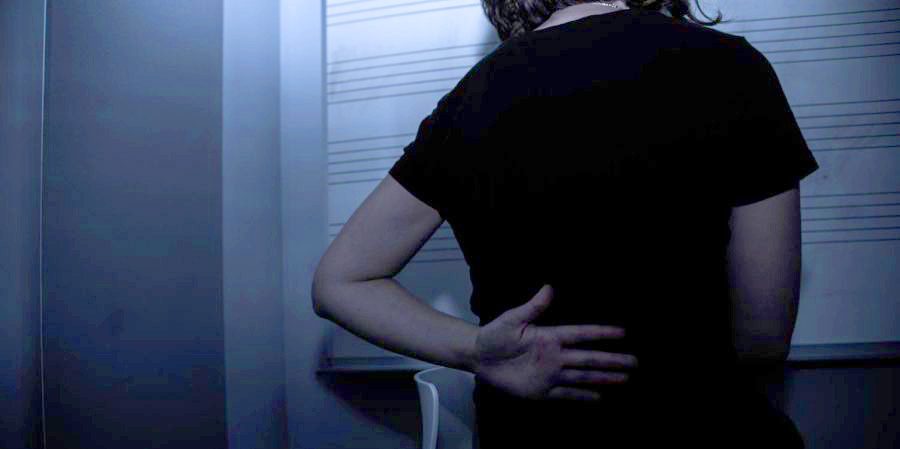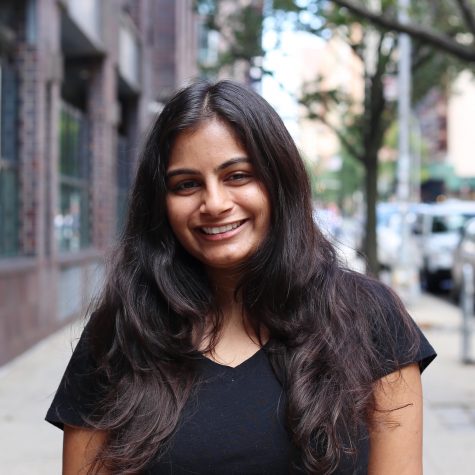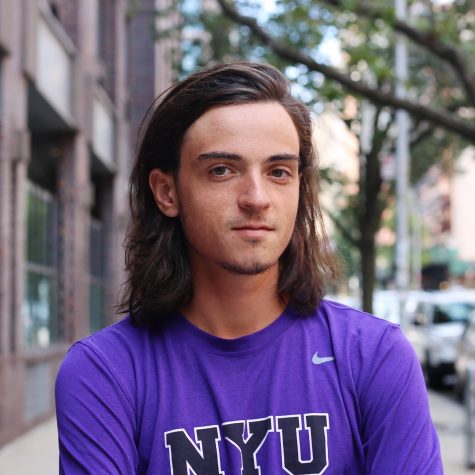While She’s at School, Her Aunt Battles Kavanaugh
Far from the political maelstrom, Christine Blasey Ford’s niece, a CAS sophomore, still feels its effects.
October 1, 2018
Long before Christine Blasey Ford became a household name for accusing Supreme Court nominee Brett Kavanaugh of sexual assault, she was simply Aunt Chrissy to her niece, Haley Peters.
“Chrissy was definitely the aunt I was closest to,” Peters, a CAS sophomore, said in an interview with WSN. “She’s always someone I’ve been able to trust and rely on, and out of everyone, she has been the most supportive through the different phases of my life. She taught me how to surf when I was younger and helped me with the whole college selection process.”
The last few weeks have completely altered Ford’s life. She has been lauded as a hero by some and sent death threats by others. Since coming forward in a Washington Post article, she has been forced to move from her home and hire private security.
Peters, whose mother is Ford’s sister-in-law, says her family has felt the effects as well.
“We all found out about [the allegations] at the same time as everyone else — in the news,” Peters said. “I got a random news notification saying someone is accusing Brett Kavanaugh of sexual assault. I clicked on it and I read ‘Christine Blasey Ford,’ and it didn’t really register, especially because I always call her Chrissy. And then I scrolled down, and they had her picture. I immediately called my mom and my dad.”
In a tense hearing on Thursday, Ford testified before 21 senators, saying she is “100 percent” certain that Kavanaugh sexually assaulted her when the two were in high school.
Kavanaugh, who testified later in the day, vehemently and emotionally denied the allegations.
After a Friday morning filled with confusion in the Senate Judiciary Committee, members decided to delay a Senate-wide vote to confirm Kavanaugh as a Supreme Court justice pending an FBI investigation into the matter.
In Peters’ mind, there is no question as to whether or not her aunt is telling the truth.
“There’s the whole argument in the last two weeks that the left has orchestrated this political attack,” Peters said. “Since June or July, she’s been trying to reach several different people, so that automatically disproves that. She was reaching out before he was the nominee.”
Not long after the allegations came to light, Ford contacted Peters and her whole family, urging them to keep their names out of it and not to speak to the press.
“She said she’s obviously very happy and grateful for the support, but she told me not to insert myself into the public eye for safety reasons,” Peters said. “Everyone she knows who has spoken publicly about it has gotten extremely harassed and publically endangered themselves.”
The family heeded the warning at first, but over the last week, her mother and her aunt have both defended Ford on national television. The family even released a letter of support for Ford that Peters signed.
But even after being directly contacted by several media outlets, Peters has been more reserved. Her fear for her own safety has kept her from the spotlight.
“I know [Ford] has received various death threats and constant harassment, along with my cousins and her husband,” Peters said. “When my mom started doing interviews and posting on Facebook, [she got] a lot of hate messages, which can easily be translated into something dangerous. There’s no doubt in my mind that we’re all in physical danger.”
NYU’s campus was abuzz with news of the hearings on Thursday and Friday; Peters described the oddity of listening to students and professors talk about a family member. NYU School of Law classes were even canceled so students and professors could watch.
“It’s been very, very frustrating,” she said. “Like trying to just focus in class and trying to check my Facebook for actual news and seeing all these people talking about it. Even my friends don’t know that she’s my aunt.”
Nikta Daijavad and Cara Hume are co-presidents of Law Women, an NYU Law student group aimed at promoting women in the legal field. They are trying to provide safe spaces for people to talk about the hearings and the effect Kavanaugh could have if confirmed to the Supreme Court.
“Even before the allegations of sexual assault, I think it was really clear to us that Brett Kavanaugh posed a threat to women,” Daijavad said. “He looked like a very different threat to women a couple of weeks ago than he does now. Our thinking was [that] women will literally die if this man gets on the Supreme Court and Roe v. Wade gets overturned.”
They say the last few weeks have revealed the pain within the NYU Law community.
“Even for women that might not have had experiences like Dr. Blasey Ford had, it was still incredibly personal to watch this hearing,” Hume said. “It was very removed from politics because of the way women innately live with this sense of vulnerability of potentially being the victim of something like that.”
Multiple NYU names have been connected to the hearings throughout the last few weeks. NYU Law Professor Melissa Murray gave scathing testimony against Kavanaugh on the fourth day of the hearings. Meanwhile, Law Professor Richard Epstein spoke to the opposite side of the issue, writing that Ford’s accusations are a political move.
Politics Professor Christine Harrington expressed her frustration with the way the hearing was handled.
“To see general basic norms being just trashed,” said Harrington, who specializes in public law, “it prevents a dialogue from happening and it was just a flat-out political show. There’s something called judicial temperament and manner, and this was just out of bounds. The conspiracy theory that [Kavanaugh] put forward was just so Fox News-ish and so out of it.”
Harrington doesn’t want to make predictions about whether or not Kavanaugh will be confirmed, but she is very clear on what the effect will be if he gets on the Court.
“It will be horrific,” she said.
Peters watched the hearings through a busy class schedule.
“It was amazing how elegantly she could speak about something so painful,” Peters said. “I was really proud of her. I just can’t believe it because we’re regular people. We’re not people that are used to being in the public eye or under scrutiny like that. There’s no reason we should be experts in dealing with the press or dealing with assault publicly.”
She was shocked for a different reason when watching Kavanaugh’s testimony.
“He was so aggressive,” Peters said. “He called her testimony — which is the hardest thing she’s ever had to do — a national disgrace. I can’t believe how it was handled. How the Senate handled it was kind of an amazing thing and not in the good sense of the word.”
Peters hopes that Kavanaugh will withdraw his name from consideration, but she is doubtful that will happen.
“If he was suspected of a different crime that didn’t involve sex, like if he was suspected of murder or even a lesser white collar crime, I can say certainly that there would be way less of a stigma around how it was handled,” Peters said. “People would take it seriously.”
For her aunt and her family, Peters just wants a return to normalcy.
“I don’t know what the ideal is for my aunt moving forward and my other family that has been in the public eye,” she said. “I don’t know how they would go back to their normal life. I’m not sure what the fix is, but I know that something needs to happen or it will just be painful and uncomfortable for the rest of her life and our life. His confirmation would obviously make that so much worse.”
Email at Sakshi Venkatraman at [email protected].
A version of this article appeared in the Monday, Oct. 1 print edition.


























































































































































